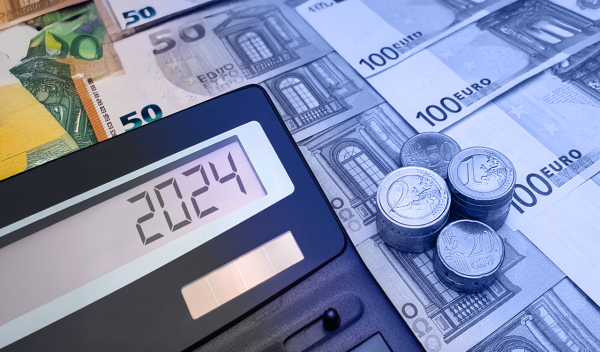
The periods of high growth of the Greek economy proved to be historically unsustainable, as they were always based on large foreign borrowing.
Furthermore, despite the country’s consistent participation in European institutions, the Greek economy has always been characterized by productivity lag, low export activity, introversion and severe institutional pathogenesis. Regarding the business ecosystem, it could not be underestimated that the majority of firms in Greece, are overwhelmingly small, and are involved, market-wise, with the purchase of non-internationally traded services and goods. At the same time, the particularly high rates of self-employment and the informal economy in the country, constitute a permanent structural disadvantage.
A set of central policies for improving the productivity and competitiveness of Greek companies is as follows:
1. Reduction of friction from taxes and labor contributions, ie for example reduction of insurance contributions, solidarity contributions, inclusion of incomes in a single tax scale, etc.
2. Implementation of support programs for small and medium enterprises, for their access to financing investments related to digital upgrade, new technologies and new production methods.
3. Increase budget expenditure on research and development and reduce production costs through more favorable tax treatment of depreciation for investments, mainly for fixed equipment and innovation.
4. Institutionalizing strong incentives to merge small and medium-sized enterprises, with the aim of achieving expanded financing capacity.
5. Simplification of the complex tax code, by minimizing the exceptions, in order to exclude any mechanism of tax evasion and shadow economic activity.
6. Development of a universal framework for the implementation of electronic payments in real time, in all sectors of the economy.
7. Strengthen the special sections in the courts for highly specialized financial cases, while expanding the out-of-court dispute resolution mechanisms.
The recent EU forecasts for the period 2021-23 anticipate recovery dynamics for the Greek economy. The ultimate goal for the country should be to increase the real per capita income, which traditionally deviates far from the European average. A goal that has been established for decades as impossible.
Mr. P.I. Xydonas is a professor at the ESSCA Grande École.
Latest News

Energy Giant Chevron Expresses Interest in Drilling in Greece
In line with this effort, the Hellenic Hydrocarbon Resources Management and Energy Resources Company (HEREMA) is submitting the Strategic Environmental Impact Study today

UBS ‘Bullish’ on Greek Banks
UBS highlights the positive trends in loans and savings and the financing cost, stressing corporate credit expansion acts as the driving force for the banking sector’s profit margins

Cost of Banking in Greece Drops from Monday
The measure aims to lower the cost of doing business and everyday transactions in Greece, with an estimated annual cost to banks of approximately €150 million.

Greek Tax Bureau Chief Details Efforts to Curb Evasion; Digitalize Administration
Independent revenue authority (AADE) Gov. George Pitsilis addresses OECD summit, cites reduction in lost VAT remittances from almost 30% in 2017 to 13.7% by 2022

Inflation in Greece at 3.7% in December 2023: Eurostat
According to recent data from ELSTAT (Hellenic Statistical Authority), inflation in Greece rate reached 3.5% in December 2023, up from 3% in November.

Winter Sales Season: Stores Open on Sunday in Greece
Most stores will operate between 11:00 AM and 6:00 PM, while shopping malls will stay open until later, from 11:00 AM to 8:00 PM

Greek Primary Surplus of €8.6bln at End of 2024
In previous budget execution reports, in October, a net amount of €3.241bln was collected from the new Concession Agreement for Attiki Odos

Fraport Greece Posts Record Numbers in 2024
In December 2024, the 14 airports posted impressive numbers in passenger traffic, welcoming a total of 805,056 visitors

Greek Economic Sentiment Steady in Dec 2024
The trade deficit amounted to 4.6 billion euros, up by 340 million euros from the same period last year.

UBS Positive Outlook on Greece, Sees Moody’s Upgrade
Moody's remains the only one of the three major credit rating agencies that still rates Greece at Ba1, one notch below investment grade









































 Αριθμός Πιστοποίησης Μ.Η.Τ.232433
Αριθμός Πιστοποίησης Μ.Η.Τ.232433